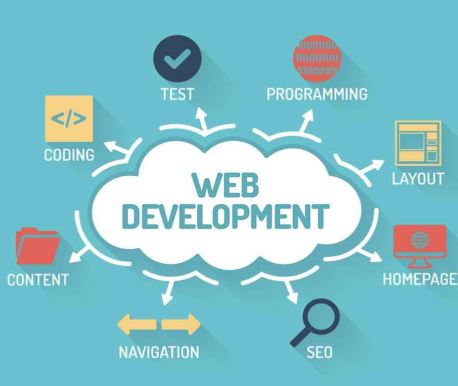Build Your Unique eCommerce Platform in Qatar
30, December 2019
Build Your Unique eCommerce Platform in Qatar
During the recent decade, e-commerce has risen steadily and has been largely a ‘south to north’ phenomenon. It has become a highly tracked place full of analytics, statistics, behaviors, and trends as well.
E-commerce has revolutionized the way companies are doing their business. For merchants, e-commerce offers a great opportunity to reach a global audience by exceeding geographical limitations through connectivity via the internet. And for consumers, they can purchase almost anything anytime and get an ultimate shopping experience.
E-commerce is becoming more of a business imperative than ever before as consumer awareness and expectations evolve. The proliferation of high-speed broadband and the availability of a sophisticated Internet infrastructure and Web-enabled mobile devices present increased economic opportunities for government, businesses, and individuals that could have a profound impact on how future business-to-business (B2B) and business-to-consumer (B2C) commerce is conducted.
This national e-commerce roadmap is the first of its kind in Qatar. It outlines the current e-commerce landscape in Qatar, details challenges and inhibitors to success, and provides the framework to chart a path forward. This roadmap is the result of a thoroughly collaborative effort with local, regional, and international stakeholders across the entire e-commerce value chain—from product creation to consumer receipt of the product—and its successful implementation is dependent on strong collaboration and coordination among the different stakeholders.

E-commerce also provides access to electronic markets, facilitating trade, promoting export-oriented business activities, and attracting foreign direct investment (FDI). More important, e-commerce sets new frontiers for innovation and competition, enhances producer bargaining power, and supports omnichannel commerce models. It can promote the entry of SMEs into the market and enable them to achieve economies of scale as well as to reach out to consumers currently unavailable to them under the traditional physical storefront and single-source sales channel mode. The MENA consumer, and notably the GCC consumer, is among the most connected and digitally
savvy in the world.
The UAE and KSA have some of the highest levels of the Internet, smartphone and
social media penetrations globally, while Egypt has one of the highest levels of time spent online
Government institutions play a role in regulating and supporting both the physical and digital business environment, including payments and in protecting consumer rights. Financial institutions enable electronic payments (e-payments) including issuers and acquirers of cards, and emerging e-payment providers (such as aggregators and processors). Logistics providers are involved in the delivery of goods to end-customers and provide local merchants with the logistics backbone required for more efficient supply chain operations.
Qatar is not far from all this noise. Qatar is the country with unique components that makes it more willing to adopt e-commerce. According to UNCTAD, Qatar leads all the Arab countries in internet penetration and according to Akamai, the country leads the world in the average connection speeds.
In 2016, Qatar’s e-commerce market was valued at $1.2 billion, making it the 7th largest in the MENA region and it’s expected to reach $2.2 billion by the end of 2019, according to the Ministry of Transport & Communications in Qatar. According to ICT in Qatar, B2B businesses dominate the largest e-commerce market share in Qatar (51% for B2B versus 49% for B2C). And it terms of the top purchased categories online, travel and electronics topped the list.
We are a software house introducing high qualified software services to our customers by our professional team.























